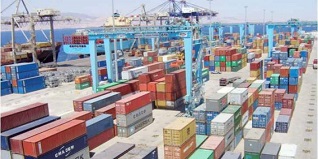08-May-2019

Exports of the Amman Chamber of Industry grew
by 13.5 percent during the first third of this year, driven by growing export
traffic to non-traditional markets and an increase in the activity of
industrial sectors, which has declined in recent years.
According to
statistical data, the Chamber's exports during the first third of the current
year amounted to 1,516 billion dinars compared to 1.336 billion dinars during
the same period last year, according to the facts of certificates of origin
issued by the Amman Chamber of Industry.
According to a press
release of the chamber on Tuesday, the continuation of the challenge of energy
costs did not help promising sectors of export development and competitiveness
in international markets. Exports of plastic and wooden industries, furniture
and packaging decreased by 9, 15 and 10 percent respectively in the first third
of this year compared with the period itself from 2018.
On the other hand, the
chemicals and cosmetics sector showed a remarkable activity during the first
third of this year, increasing its share of total exports by 7 percentage
points to about 23.1 percent compared to 15.8 percent for the same period last
year due to the growth of exports by 67 percent, About 142 million dinars.
Exports of the
industrial sector increased by 11 percent or KD 41 million, while exports of
the medical and medical industries increased by 9 percent or 14 million
dollars, Dinar.
The Chamber pointed
out that some international markets began to move slightly in response to all
the collective and individual efforts made during the past years, pointing to
the export growth of targeted international markets, such as Bahrain,
Singapore, Croatia, Greece, Bangladesh, Philippines and Ethiopia, but the
uncertainty of their sustainability as export markets Remains a pressure factor
on Jordanian factories.
The Chamber pointed
out that its exports to the countries of the region witnessed natural growth
except for Qatar, Iraq, Tunisia and Sudan, where exports fell to 18, 4, 46 and
65 percent, respectively.
The Chamber stressed
the necessity of moving from the state of immediate treatment to the challenges
to a general and in-depth treatment of the reasons for the decline in the
industrial sector's ability to sustainably and comprehensively grow by
enhancing its competitiveness, ensuring short-, medium- and long-term
industrial and export policy that is not subject to changing official trends
and strengthening its base in the face of regional and international changes.
×
![]()